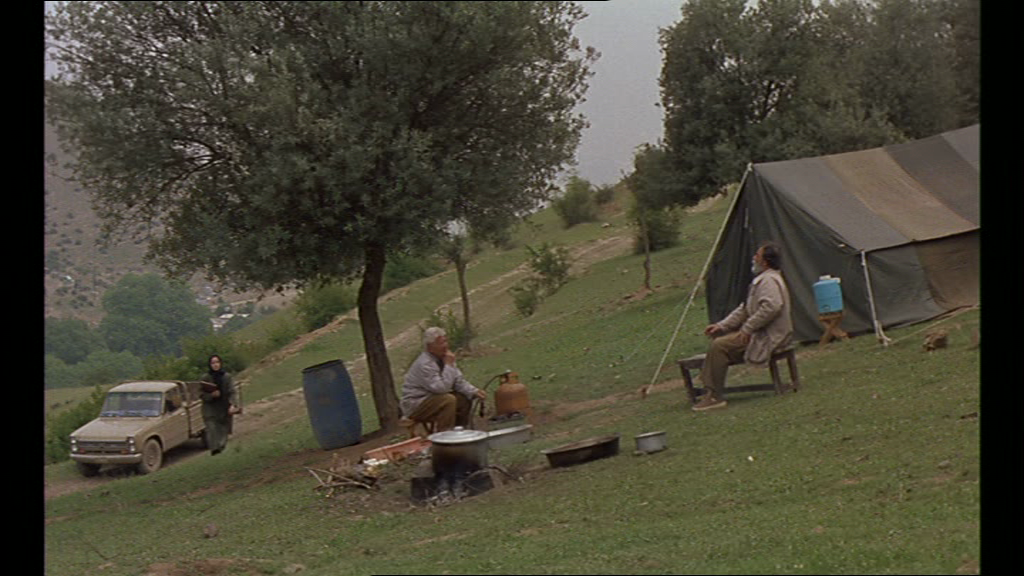My latest column for Caiman Cuadernos de Cine:
Two signs of hope in an era often defined by hopelessness:
(1) After a half century of prevarication, media has finally gotten around to calling Donald Trump a gangster, thanks to the 34 accusations of “racketeering” in his Georgia indictment, thus forever altering his media profile.
(2) An experimental, intellectual essay film (and comedy), Greta Gerwig’s Barbie, has become a world-wide hit, thanks in part to its audience not perceiving it as such. Thus a belated form of truth-telling in politics occurs around the same time as an effective form of subterfuge in cinema.
A century ago, audiences had far less difficulty calling Al Capone a gangster and perceiving F. W. Murnau’s Der letzte Mann as some sort of experimental and intellectual essay film, largely because they hadn’t received as much conditioning from publicists as we’ve had, to hate and mistrust films addressing our intellects.
A federal law in the U.S. known as the Racketeer Influenced and Corrupt Organizations (RICO) Act and a highly successful line of dolls for little girls have helped to set the stage for these surprising recent developments. Furthermore, Capone arguably had some edge over Trump due to his taste for culture (e.g., Read more
From the Chicago Reader (September 29, 1995). — J.R.


Homework
**** (Masterpiece)
Directed by Abbas Kiarostami
Through the Olive Trees
*** (A must-see)
Directed and written by Abbas Kiarostami
With Hossein Rezai, Tahereh Ladanian, Mohamad Ali Keshavarz, Farhad Kheradmand, and Zarifeh Shiva.
At the Toronto film festival earlier this month Canadian filmmaker Clement Vigo recalled the memorable response of Winston Churchill to pressure to cut state arts funding during World War II: “If we cut funding for the arts and culture, then what are we fighting for?” It’s a question I’ve been pondering ever since.
A month earlier, while I was in the middle of looking at close to 100 films as part of the New York film festival’s selection committee, I had the rare privilege of being able to fly for a weekend to still another festival, in Locarno, Switzerland, to serve on a panel devoted to Godard’s Histoire(s) de cinéma. Locarno had two ambitious sidebars this year — one devoted to Godard’s video series, the other to Iranian women filmmakers and the first virtually complete retrospective of work by Iranian master Abbas Kiarostami ever held anywhere, including an exhibition of his color photographs of landscapes and two very beautiful paintings. Read more

All of those who can find or make no meaningful distinction between the following two sentences — “The world is going to hell in a handbasket”; “America is going to hell in a handbasket” — are likely to find an article called “The Cecil B. De Mille of Movie Lists” by Stuart Miller, featured prominently in the Arts and Leisure section of today’s New York Times, precisely the sort of entertaining news that intelligent movie lovers should be paying close attention to. I’ll try to oblige them.
The article celebrates (and perpetuates) the untiring efforts of a produce clerk in Austin, Texas to list the 9,200 greatest movies ever made, a project clearly viewed by Miller as the quest of an enlightened primitive. But what could be more primitive than Miller’s own assumption that the clerk’s omission of silent films and animated films is a secondary matter, to be squirreled away in the article’s penultimate paragraph? Or, even worse, that three more minor omissions, apparently equivalent to one another in importance, and clearly even less important than silent and animated films — “documentary, made-for-TV and foreign-language films” — can be acknowledged parenthetically in a follow-up sentence?
I suppose we should all therefore assume, along with Miller and his editors, that foreign-language documentaries, silent documentaries, made-for-TV documentaries, foreign-language TV films, and foreign-language animated films (among other neglected possibilities) are omissions that aren’t even worth mentioning, even in passing, as existing categories. Read more



